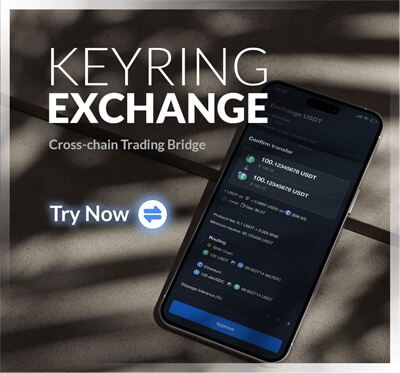Unveiling the Vietnamese National Blockchain Strategy

Vietnamese National Blockchain Strategy.
On October 22, 2024, the Vietnamese government introduced Decision No. 1236/QĐ-TTg, unveiling the National Blockchain Strategy. This initiative is designed to promote blockchain technology and its applications through 2025, with a broader vision extending to 2030. It marks a significant step in Vietnam’s journey toward building a strong digital infrastructure and fostering sustainable growth in the digital economy.
By 2030, Vietnam aims to become a regional leader in blockchain research, implementation, and application. The government plans to develop 20 prominent blockchain brands, establish at least three blockchain testing centers in major cities, and secure a place among Asia’s top 10 research institutions.
To achieve these ambitious goals, five key actions have been outlined: improving the legal framework, expanding blockchain infrastructure, cultivating human resources, encouraging blockchain adoption, and enhancing international collaboration. These tasks are distributed across various ministries, including the Ministry of Information and Communications, the Ministry of Science and Technology, and the Vietnam Blockchain Association (VBA).
The VBA, in particular, has been assigned the responsibility of developing “Make in Vietnam” blockchain platforms and increasing competitiveness against foreign companies. According to Mr. Phan Đức Trung, Vice Chairman of VBA, this strategy reflects the government’s commitment to advancing the digital economy, emphasizing blockchain’s role in creating a secure, transparent ecosystem.

This National Blockchain Strategy stands as the most comprehensive legal document thus far, underscoring the government’s determination to leverage blockchain technology in driving Vietnam’s digital and socio-economic objectives.
Additionally, the government is working to legalize the definition of Digital Assets, aligning with efforts to combat money laundering, terrorist financing, and the proliferation of weapons of mass destruction. These measures are crucial for Vietnam’s removal from the Financial Action Task Force (FATF) grey list, a target set for May 2025. These initiatives are part of the National Action Plan, issued in Decision No. 194/QĐ-TTg on February 23, 2024.
Since Vietnam was placed on the FATF grey list in June 2023, the VBA has played a key role in contributing to the development of the legal framework for Digital Assets. This includes organizing seven workshops and submitting various written proposals aimed at creating regulations that align with international practices while addressing the country’s specific needs.
Pros and Cons
Pros of the National Blockchain Strategy:
- Boosting Innovation: The strategy provides a strong foundation for fostering innovation and entrepreneurship in Vietnam’s tech sector. By promoting the development of blockchain technology, Vietnam positions itself to lead in an emerging and lucrative field.
- Economic Growth: Encouraging blockchain development could lead to sustainable economic growth, as it opens new markets and enhances efficiency in sectors like finance, logistics, and public services.
- Global Competitiveness: With a robust blockchain infrastructure and legal framework, Vietnam could become a regional hub for blockchain research and development, attracting foreign investment and boosting its international competitiveness.
- Transparency and Security: Blockchain technology offers increased transparency and security, potentially reducing corruption, streamlining government services, and fostering trust in the public and private sectors.
- Alignment with Global Standards: By adhering to international standards such as those outlined by the FATF, Vietnam can improve its global standing, enhance its regulatory framework, and position itself as a trusted partner in the international community.

Cons of the National Blockchain Strategy:
- Implementation Challenges: Establishing the necessary infrastructure, legal frameworks, and training programs may take time, and delays in implementation could hinder progress toward the 2030 goals.
- Regulatory Uncertainty: As blockchain technology evolves, the legal framework may struggle to keep pace, leading to potential gaps in regulation that could result in misuse or uncertainty for businesses.
- Potential for Misuse: While blockchain technology offers enhanced security, it can also be exploited for illicit purposes such as money laundering and fraud if not properly regulated.
- Human Resource Development: Training sufficient human resources to meet the demand for skilled blockchain professionals may be difficult, especially in the short term. The lack of expertise could slow the adoption and development of blockchain technologies.
- Dependence on Global Collaboration: Fostering international cooperation is crucial, but it also leaves Vietnam dependent on external factors, such as changes in global blockchain standards or geopolitical tensions that could affect partnerships.
What does this mean?
According to a report from Triple-A, Vietnam consistently ranks among the top countries in the world for cryptocurrency ownership.

The government’s issuance of the National Strategy for Blockchain Technology Application and Development is highly significant. This move highlights the growing influence of cryptocurrencies, prompting the government to implement legal measures. It lays the groundwork for future legislation governing crypto, which will help protect users from scams and deter fraudulent projects.
However, there is a downside to this development. The legalization of blockchain and cryptocurrencies may contradict the fundamental principles of crypto: “Decentralization” and “Anonymity.” The question remains: can the new regulations protect users while preserving the inherent decentralization of blockchain? We will have to wait for the answer.
KEYRING PRO Wallet – the web3 wallet for you
Cryptocurrency has steadily asserted its strength in the global economy, growing to the point where countries are creating legal frameworks for its regulation.
It’s no surprise that crypto adoption is increasing, with more people entering the market. And what is essential for anyone participating in the cryptocurrency space? That’s right—a Web3 wallet.
So, how do you choose the right Web3 wallet? We’ve put together a list of the top 10 Web3 wallets available today.
>> Top 10 Fintechzoom Best Crypto Wallets to use in 2024 and forward. – KEYRING PRO <<
However, we recommend KEYRING PRO Wallet. Why?
- User-Friendly: Easy asset management
- Useful Features: Includes NFC, built-in exchange, and customizable options
- Supportive Ecosystem: Backed by the KEYRING ecosystem
Download and experience the perfect crypto wallet for you today!


